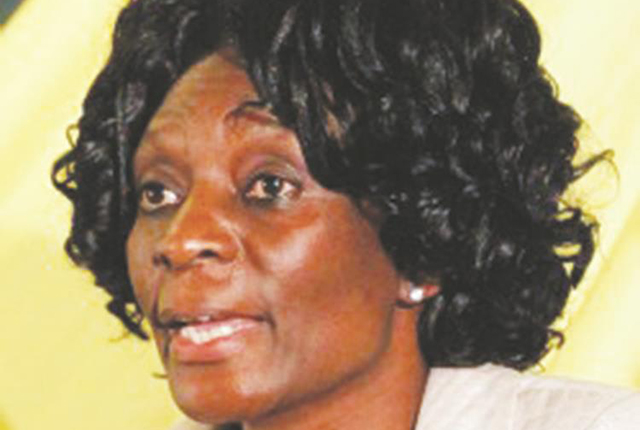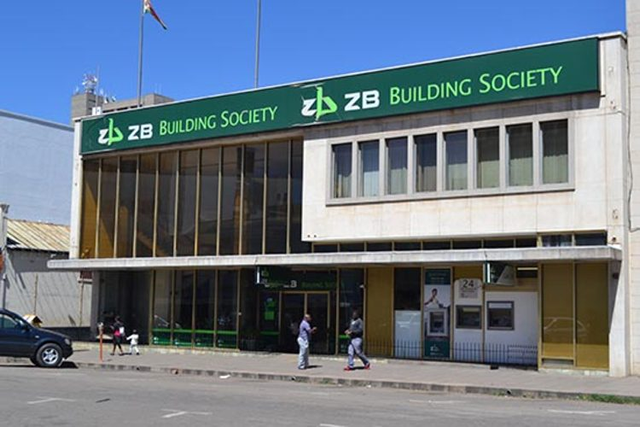We are back in the game!
Victoria Ruzvidzo Business Focus —
Phew! At last Zimbabwe has been restored as a full and legitimate member of the International Monetary Fund. All the previous restrictions that the country has been battling to shrug off since 2001 have finally budged.
Zimbabwe can walk with a spring in her steps yet again, attending meetings not as a victim but as a legitimate member with voting rights and all the goodies that come with being party to the influential institution.
What a way to end the year for a country that has largely been limping from the effects of the ban by the IMF 15 years ago, compounded obviously by the sanctions that it has had to endure. The effects of successive droughts, corruption and other vices have been too heavy to handle.
I could, therefore, not believe my eyes when I read the statement from the IMF that indeed it had lifted remedial measures on Zimbabwe.
Indeed this country owed the IMF and many other lenders but whether the 15 years in the wilderness were justified is a subject for another day. Suffice to say it had indeed been long since this country was considered to be anything but an inconvenience to the Breton Woods institution.
As a journalist who has spent the bulk of my career on the business desk, I witnessed Zimbabwe being discarded by the IMF despite pleas for leniency. I was also privy to be behind the scenes efforts to restore the country’s position in the IMF so I know what it means and what it has taken for Zimbabwe to have achieved the new position it has achieved today.
Clearing the debt has not been a walk in the rose garden. I remember the central bank making initiatives years ago to pay funds to avert the censor that came with the arrears position.
I remember instances when the central bank would be grilled for paying part of its debt with what the multilateral lender termed “dubious” funds as the “system” sought to keep the country in the trenches.
I remember in one instance former Reserve Bank of Zimbabwe Governor Dr Gideon Gono and his team being told by the IMF that they had paid part of the dues using “dirty money” as some in the institution sought to tarnish the country image and do everything that was possible then to keep the country at bay.
It was more of politics that was now at play. But Dr Gono remained resolute and invited the institution to launch investigations to verify the authenticity of the funds. Eventually the IMF felt the greenbacks were green enough hence the payment sailed through.
This is just to illustrate that it has been a long, thorny and arduous journey that has culminated in Zimbabwe having its status restored this week.
At some point I actually developed personal hatred for the IMF I could have had a word or two with the then IMF president Dominique Strauss Khan at the slightest of opportunities.
I felt inside me that it was so wrong for a whole institution like the IMF to descend so heavily on a small country such as Zimbabwe, constricting its efforts to stand up and be counted on the global stage.
Of course we all know that when the IMF sneezes most lenders catch a cold. So the worry was not just about the IMF stance but how every other financier would read into this and withhold assistance to Zimbabwe. Indeed this happened according to the script and Zimbabwe is still smarting from the effects of a vote of no confidence by the IMF.
However, some lenders such as the African Development Bank and the Africa Export and Import Bank have kept their faith in this country hence it is still standing. There is God in heaven!!!
Last month, Zimbabwe paid the remaining arrears of US$107 million, paving way for resumption of normal relations.
“The executive board of the IMF approved today (Monday) the removal of remedial measures applied to Zimbabwe that had been in place because of the member’s overdue financial obligations to the Poverty Reduction and Growth Trust (PRGT), effective November 14 2016.
“These measures are (i) declaration of non-co-operation with the IMF, (ii) the suspension of technical assistance (which had already been partially lifted), and (iii) the removal of Zimbabwe from the list of PRGT — eligible countries.
“This follows Zimbabwe’s full settlement of all its overdue financial obligations to the PRGT of SDR 78,3 million (about $107,9 million) on October 20, 2016.
These are life-transforming words that have potential to open new funding avenues while putting the country’s brand in better stead.
Zimbabwe needs to ride on this new dispensation and turn it into proper currency to help propel the economy to greater levels. With globalisation and all its challenges and benefits, Zimbabwe needed to have its name cleared as has happened so that it can access due assistance from the IMF and other multi-lateral and bi-lateral lender.
We commend the Minister of Finance and Economic Development Patrick Chinamasa, RBZ governor Dr John Mangudya and his team for a job well done in their quest to lure international financial institutions back to Zimbabwe as part of their re-engagement strategies.
This drive should not lose steam. Zimbabwe needs to continue in the process and also pursue avenues to pay up its arrears to the ADB, Afrexim Bank and others it owes to remove the debt burden on the economy.
It is also prudent for the country to pursue aggressive economic policies that augment developments with international funders. The country is facing a huge funding gap for its home-grown economic strategy, the Zimbabwe Agenda for Sustainable Socio-Economic Transformation.
The liquidity challenges that are so evident in the economy also need attention. The restored relations with the IMF is obviously expected to alleviate this shortage.
Zimbabwe will also need to put in place strategies to deal decisively with such vices as corruption, externalisation of funds and other such malpractices that have put paid to any initiatives to revive the economy. The new dispensation should inject vigour into the economy.
Zimbabwe has the wherewithal to get its fair share of goodies. The meteorological department anticipates normal rains, the IMF has cleared us and the monetary and fiscal authorities are doing all they can to get the economy ticking again. These factors should combine to produce better economic performance in the medium to long term.
Below is a synopsis by the Investopedia on the IMF for a clearer picture of what this institution is about.
What are the advantages and disadvantages of the International Monetary Fund?
Established following the Second World War to help with post-war recovery, the International Monetary Fund (IMF) to modern governments and an overseer of international financial markets, supporters claim that it is a necessary lender of last resort for areas in crisis and that it can impose necessary or difficult reforms on backward economies.
Critics counter that the IMF supersedes national autonomy, exacerbates economic problems more often than not, and serves as a tool of the wealthiest nations only. Economists frequently criticise the IMF for creating moral hazard on national scales.
IMF Advantages
The IMF assists member nations in several different capacities. If a country has a balance of payments deficit the IMF can step in to fill the gap. It serves as a council and adviser to countries attempting a new economic policy. It also publishes papers on new economic topics.
Its most important function is its ability to provide loans to member nations in need of a bailout. The IMF can attach conditions to these loans, including prescribed economic policies with which borrowing governments must comply.
IMF Disadvantages
Despite its lofty status and commendable objectives, the IMF is attempting to pull off a nearly impossible economic feat: perfectly timing and sizing economic intervention on an international scale.
The IMF has been criticised for not doing much and for overreaching. It has been criticised for being too slow or too eager to assist failing national policies. Since the United States, Japan and Great Britain feature prominently in IMF policies, it has been accused of being a tool for free-market countries only. Simultaneously, free-market supporters roundly criticise the IMF for being too interventionist.
Some member nations, such as Italy and Greece, have been accused of pursuing unsustainable budgets because they believed the world community, led by the IMF, would come to their rescue. This is no different than the moral hazard created by government bailouts of major banks.
In God I Trust!
Email: [email protected]; Whatsapp: 0772129972







Comments